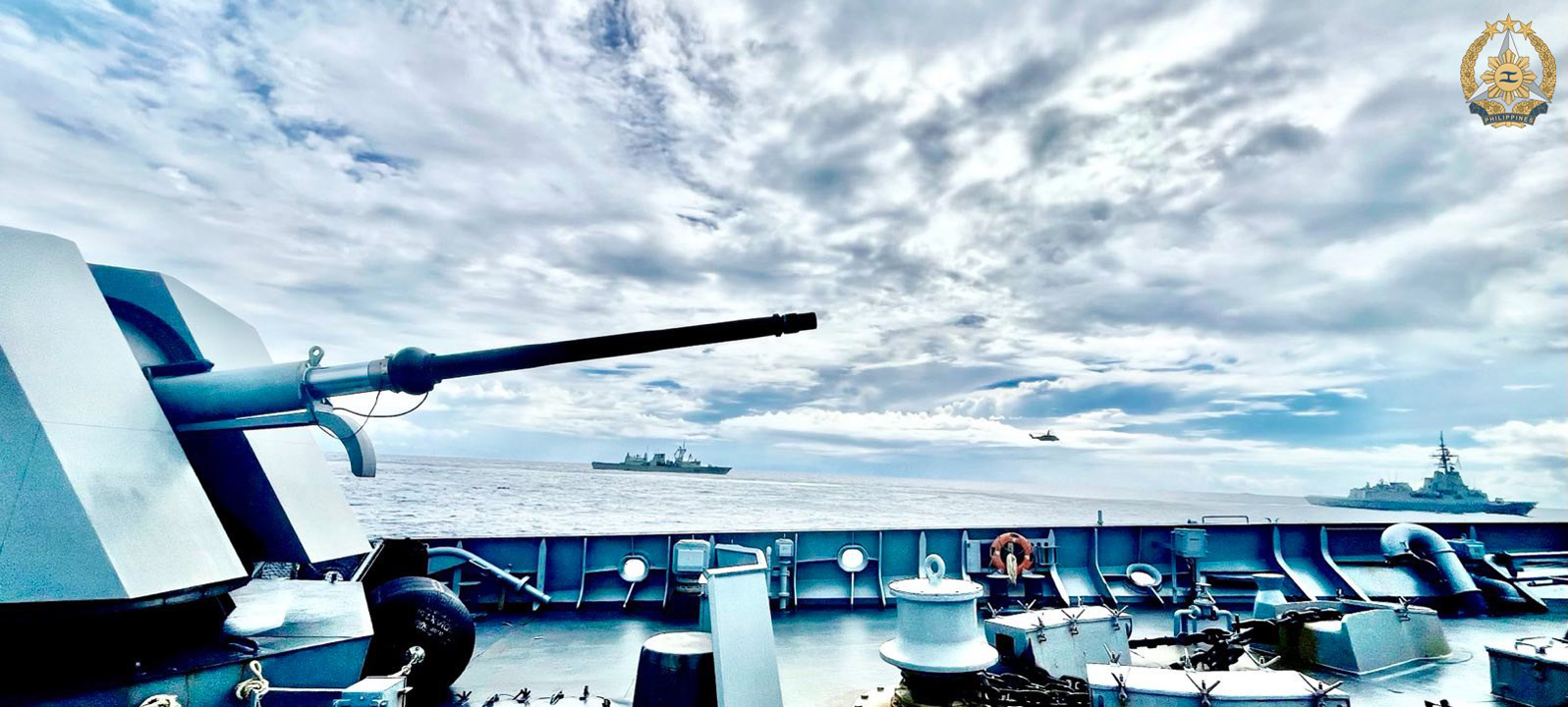
The Philippines ended its joint naval drills with Australia and Canada near a disputed shoal in the South China Sea on Wednesday, signaling tighter defense ties with allies in the contested waters fraught with tension.
The Armed Forces of the Philippines (AFP) on late Wednesday said the Philippine frigate BRP Jose Rizal, Australian destroyer HMAS Brisbane and Canadian frigate Ville de Quebec passed by Scarborough Shoal, capping off the almost two-week naval exercise that formed part of Exercise ALON (wave) 2025.
The warships began their naval exercise off the coast of Palawan province and sailed northward, the AFP said, coinciding with the Philippines and Australia’s biggest military engagement this year.
“As a key component of Exercise ALON 2025, this engagement reaffirms the Armed Forces of the Philippines’ commitment to advancing defense cooperation with like-minded nations,” it said in a statement.
The Philippine military had said the maritime exercises were meant to uphold regional stability in the South China Sea.
China claims almost the entire South China Sea under its controversial nine-dash line — an assertion rejected by the Philippines and other Southeast Asian nations such as Vietnam, Malaysia and Brunei, whose exclusive econom-ic zones are affected.
In 2016, the Permanent Court of Arbitration in The Hague ruled in favor of the Philippines, voiding China’s sweeping claims over the contested waters. However, Beijing has refused to recognize the ruling and maintains a heavy presence in disputed areas, including the Spratly Islands and Scarborough Shoal.
Philippine Colonel Dennis F. Hernandez, executive agent for Exercise ALON, earlier said the maritime exercise is not aimed at any country, and is meant to keep “rules-based international order” in the disputed waters.
The Philippines has increasingly leaned on multinational cooperation to shore up its maritime defenses. It has participated in more frequent joint patrols and multilateral naval exercises in the South China Sea, often alongside US forces and other regional partners.
Multinational military cooperation, once rare in the contested waters, is fast becoming routine. Earlier this year, the Philippines conducted trilateral air and sea patrols with the US and Australia. — Kenneth Christiane L. Basilio